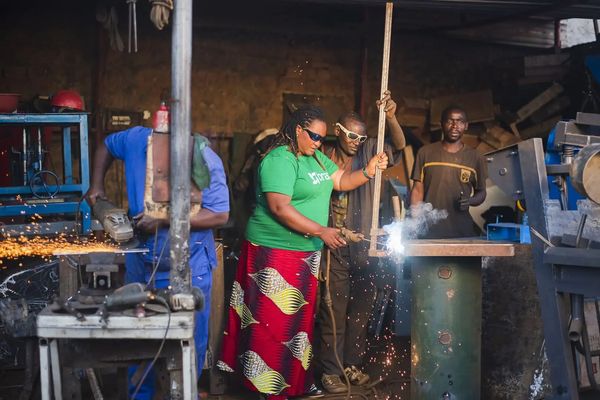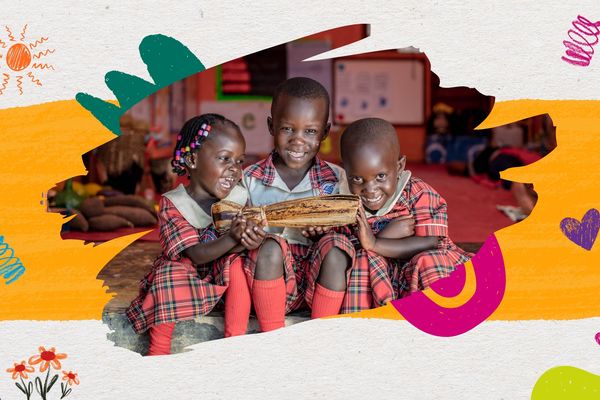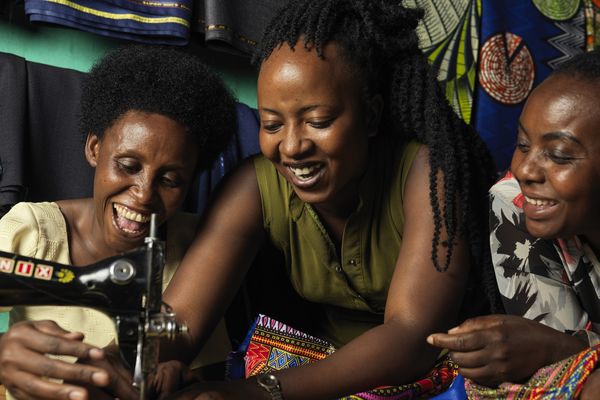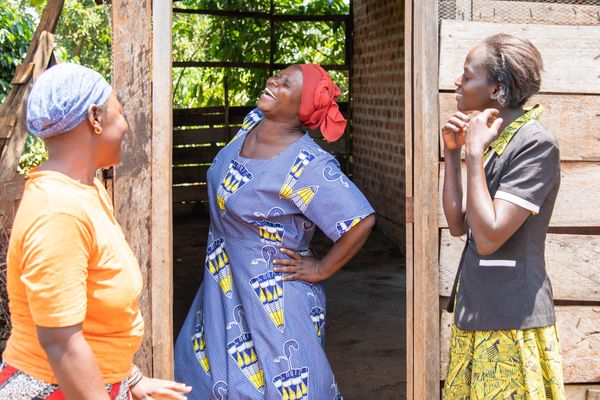When the price of gas nearly doubled in her village in Rwanda, Umutoni faced a seemingly impossible challenge. How was she to feed her household of 13 family members?
She realised she not only had 13 mouths to feed, but 13 minds to bring together to create a solution.
Her husband, Vincent, is a mechanic. Her children are all studying science subjects. Umutoni herself is a university graduate who studied Physics.
She sat her family down and explained the problem.
“We need to think differently.”
They aimed to create a solution that was more cost-effective than buying gas and could utilise the charcoal that is usually thrown away.
Within one hour, she and her family invited a new kind of stove—one that used cheaper charcoal and an electric component that lit the fire within seconds.
Their invention became popular. Umutoni and her husband now build and sell stoves from their workshop to others in their community. They have 10 employees and build other machinery, from charcoal burners to stone-cutting machines.
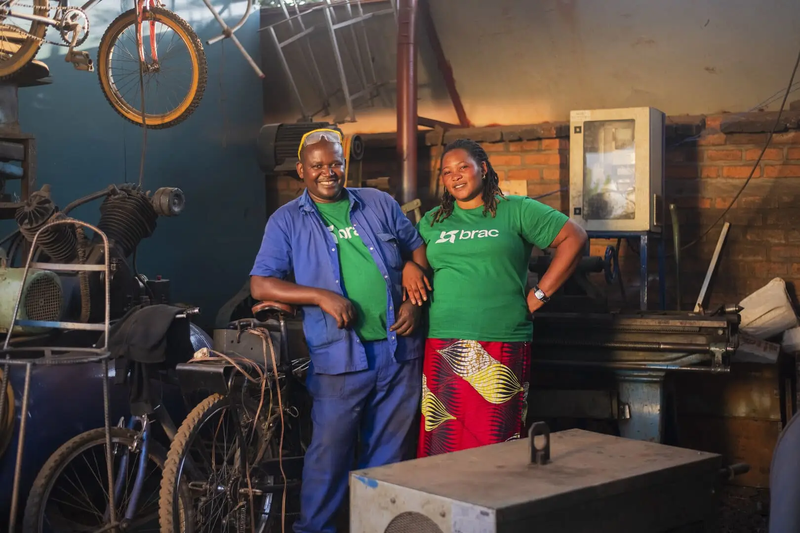
Photo: Sarker Protick/BRAC
“I have always been inspired by my own background. I come from a poor family. I had to develop ideas out of necessity. I have to lift my family higher. I didn’t want to depend on my husband to solve my family’s problems. I wanted to be independent for myself,” said Umutoni.
Umutoni Sandrien is the president of her microfinance group and she was the first client to get a loan worth 1 million Rwandan Francs (USD 762). She teaches her group members how to invest their money, how much to save, and gives them business ideas.
“I show them the places where they can come and sell their goods. I tell them we must support each other. I encourage them to love each other and also lead each other to success.
I chose to study science and physics because I know there is a huge gap in Africa. There are not enough women in the field and importing technology is not enough. I decided to take up the challenge to invent and sell at an affordable price. After I finished school, it was not easy to get investors to believe in me and all the ideas I had. When I learnt about BRAC, I realised it would be faster to get loans and there were no collaterals required. I was able to try out my ideas, and I saw what was possible”.
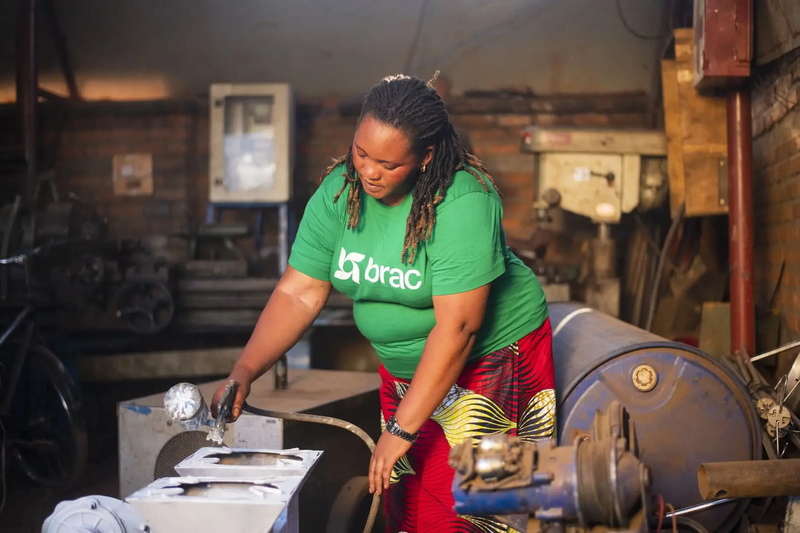
Photo: Sarker Protick/BRAC
Globally, there’s a $1.7 trillion gap between the credit women need and what they’re able to get.
According to The UN, Micro-, Small, and Medium-sized Enterprises (MSMEs) account for 90% of businesses, more than 70% of employment, and 50% of GDP worldwide forming the backbone of many economies and driving innovation, employment, and sustainable growth. Yet, access to financial services remains a significant challenge, especially for women who face additional barriers such as gender and social norms, lack of collateral, and financial literacy
In Africa, one in four women is an entrepreneur – but women receive a fraction of the capital than men do. African women are more likely to own or work in informal microenterprises, most of which lack access to responsible financial services, holding them back from growing their businesses.
Women’s economic empowerment is central to improving their status in society, realising their rights, and achieving gender equality. At BRAC, we invest in the potential of women like Umutoni. She is one of 828,000 clients we serve across Rwanda, Tanzania, Uganda, Liberia, Sierra Leone, Ghana, and Myanmar – 96% of whom are women.
When we invest in women, we invest in a better world.
Michelle Wandia is Deputy Communications Manager at BRAC International Holdings B.V
and Zaian Chowdhury is Communications Manager, Mastercard Foundation Accelerating Impact for Young Women (AIM) in partnership with BRAC programme
